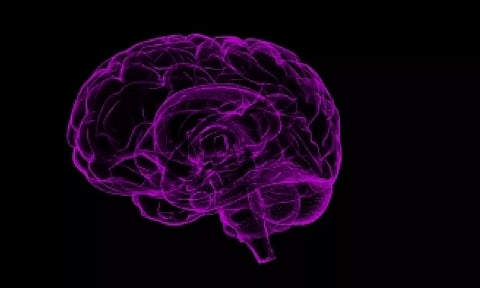

LONDON: A team of Indian-origin scientists has identified 11 risk factors, mostly modifiable, for developing dementia -- a condition affecting about 50 million people worldwide and projected to triple by 2050.
The new dementia risk score identifies people at risk -- from mid-life onwards -- of developing the disease within the next 14 years.
But targeting key risk factors, several of which involve lifestyle, could potentially avert around 40 per cent of cases, according to the long term study published in the open access journal BMJ Mental Health.
The 11 factors were: age, education, history of diabetes, history of current depression, history of stroke, parental dementia, economic disadvantage, high blood pressure, high cholesterol, living alone and male sex.
"It’s important to remember that this risk score only tells us about our chances of developing dementia; it doesn’t represent a definitive outcome," said Sana Suri, Associate Professor at the University of Oxford.
"The importance of each risk factor varies and given that some of the factors included in the score can be modified or treated, there are things we can all do to help reduce our risk of dementia," she added.
For the study, the researchers drew on two large groups of 50 to 73-year olds participating in two long term studies -- one group for developing the new risk score (UK Biobank study) and one for validating it (Whitehall II study).
In all, 220,762 (average age just under 60) people from the UK Biobank study and 2,934 (average age 57) from the Whitehall II study were included in the final analysis.
Further, the APOE gene, which is involved in the production of a protein that helps carry cholesterol and other types of fat in the bloodstream, is a known risk factor for dementia.
Its carriage was known for 157,090 participants in the UK Biobank study and 2315 of those in the Whitehall II study and added to the risk score.
"While older age (60 and above) and APOE confer the greatest risk, modifiable factors, such as diabetes, depression, and high blood pressure also have a key role. For example, the estimated risk for a person with all of these will be approximately three times higher than that of a person of the same age who doesn't have any," Suri said.
The researchers suggest that the accuracy of their risk score could be further improved by adding cognitive tests, a brain scan, and a blood test for indicators of neurodegeneration.
But as these are expensive and/or time intensive, they may not always be available.
However, Dr Raihaan Patel, the lead author of the study, said more research is needed "before we can use this risk score in clinical practice".